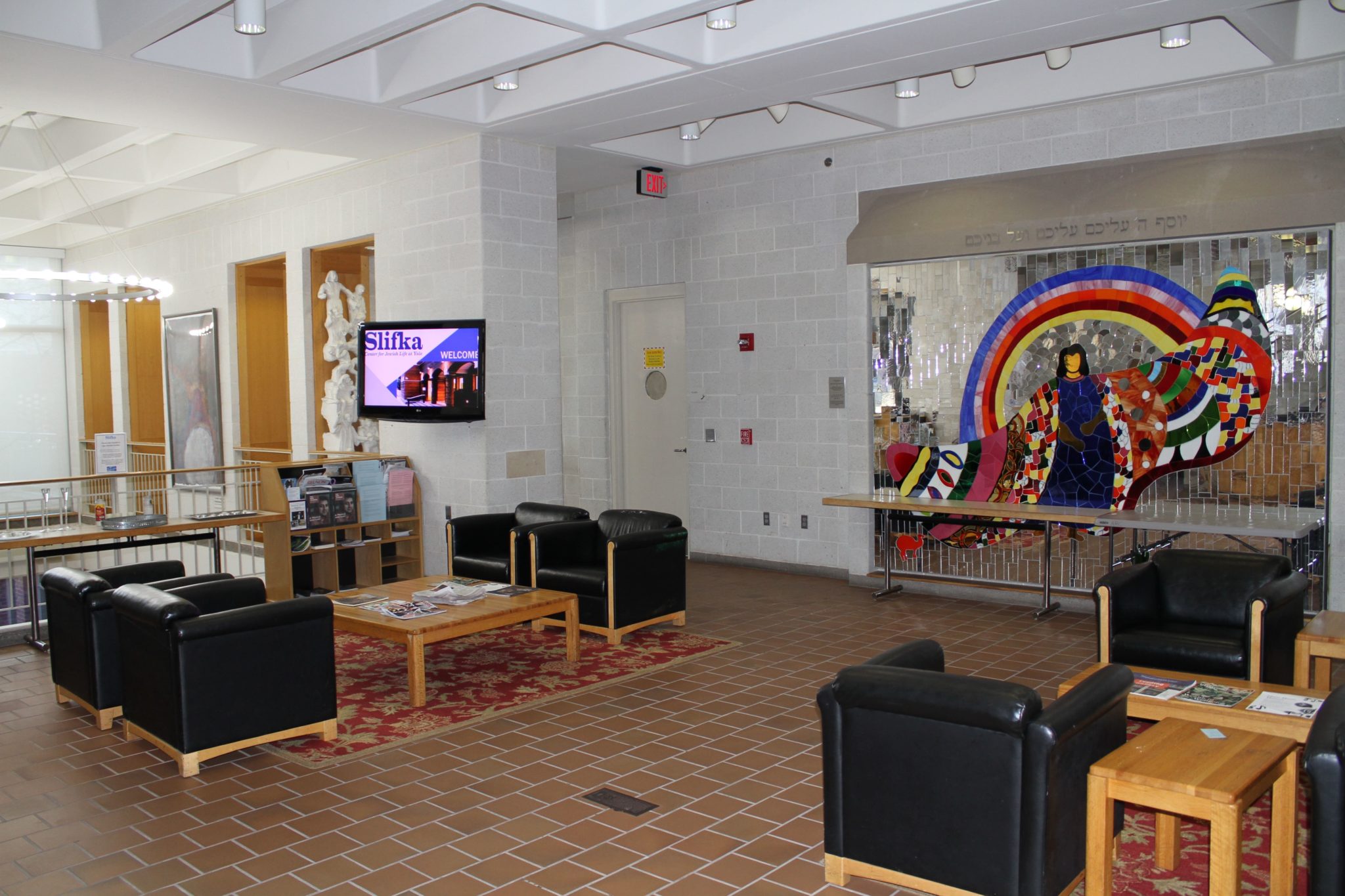
As members of the Yale community and beyond grapple with sexual misconduct in the #MeToo era, the Joseph Slifka Center for Jewish Life at Yale is working to improve its own policies and culture surrounding sexual harassment in the Jewish community.
Leadership at Slifka have begun revising policies and planning trainings for staff and affiliate student organizations on the issue of sexual harassment, according to an email to the Slifka community sent by Slifka Senior Development Officer Jennifer Wallis and Rabbi Jason Rubenstein last Thursday. Students have also formed a new student group, MOSHiA — Move On Sexual Harassment and Assault — to ensure that Slifka upholds its commitment to address sexual harassment.
“We have spoken with students who are involved with MOSHiA, and we are proud to be in the process of a review of our values, culture, and policies in this regard. The genesis of this effort on our part predates MOSHiA, and at the same time is spurred onward by it and informed by the energy and insight of our amazing students,” Slifka Executive Director Uriel Cohen wrote in an email to the News. “We are devoting significant staff resources to making sure that we do this right, and also in a timely fashion.”
Members of MOSHiA met with Slifka staff in December to advocate for a formal and public process to develop “robust policy around sexual violence” for all members of the Slifka community, including students, employees and donors, according to MOSHiA organizer and staff columnist for the News Avigayil Halpern ’19. Halpern added that Slifka leadership “took [their] requests to heart,” and MOSHiA will serve primarily as an accountability check to ensure that Slifka upholds its commitments, which include hosting listening sessions with students this semester.
According to the group’s statement of purpose, the name “MOSHiA” originates from a passage in the Torah that scholars have interpreted to advocate for “communal responsibility in the face of sexual violence.” A “moshia” serves as a rescuer who prevents other community members from experiencing sexual violence, according to the statement.
“Our goal is to create a Jewish community in which it cannot be said that there is no moshia. And our vision is not one of saviors of the helpless,” MOSHiA’s statement reads. “We envision a community that is itself a moshia, that is accountable at every place and time to those who are vulnerable within it, in particular the women and queer and trans people who are at greater risk for sexual violence.”
MOSHiA is also advocating for a public statement from Hillel International — an international organization of Jewish communities on college campuses — regarding allegations of sexual harassment against a major Jewish donor publicized this fall. Michael Steinhardt, a hedge fund manager and philanthropist who co-founded Birthright Israel, was under investigation by Hillel International last year for allegedly making inappropriate sexual remarks to two Hillel staff members, according to the New York Jewish Week. While Hillel has removed Steinhardt from its online list of board of governors and allegedly decided against soliciting funding from Steinhardt’s foundation in the future, according to New York Jewish Week, the organization has declined to comment on the matter publicly.
Halpern, the MOSHiA organizer, emphasized that Hillel International’s efforts to address sexual harassment are “meaningless” until the organization publicly reckons with its connection to Steinhardt and urged Hillel to issue a public statement.
“Slifka has the potential to grapple with this challenge that we’re confronting because of Hillel International,” Halpern told the News. “Donors have a lot of power. It’s very important for Jewish organizations to think carefully about who they take money from and what kind of power that gives the donors.”
Matthew Berger, vice president of communications for Hillel, wrote in an email to the News that the organization supports Slifka’s efforts and cited Hillel’s recent efforts to address sexual harassment and assault. Last year, Hillel partnered with the Safety Respect Equity Coalition to “implement comprehensive standards in sexual harassment prevention and response across the Jewish non-profit sector,” according to Berger.
Slifka will consult experts on campus, such as the Yale Communication and Consent Educators and the Sexual Harassment and Assault Response & Education Center, as it drafts new policies, according to the email from Slifka leadership. Halpern told the News she hopes Slifka’s new policies can serve as a model for other Hillel groups around the country.
Alice Park | alice.park@yale.edu







